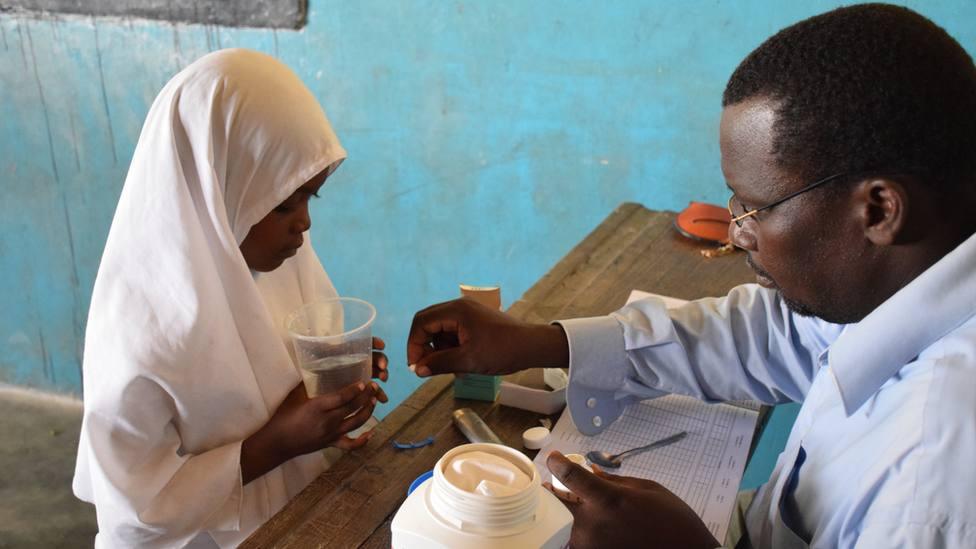UK funding increased to fight neglected tropical diseases
- Published

More funding means tablets can be distributed to millions of children to treat neglected tropical diseases
The UK government is investing an extra Ā£200m in programmes to fight neglected tropical diseases, which affect more than a billion people in the world's poorest countries.
Without treatment, river blindness, guinea-worm and trachoma can disable children and stop adults working.
The funding will go towards the distribution of tablets to treat diseases and research into new drugs.
Ministers said the aim was to eliminate neglected tropical diseases for good.
The announcement comes ahead of a in Geneva dedicated to neglected tropical diseases and their eradication.
Over the next four years, the UK will spend a total of Ā£360m on programmes to tackle diseases such as:
Visceral leishmaniasis - a parasitic disease, caused by infected sand flies, which destroys the internal organs
Guinea-worm disease - an infection transmitted through dirty drinking water containing water fleas
Trachoma - infection from poor hygiene practices which can cause blindness
Lymphatic filariasis - infection transmitted by mosquitoes which can cause swelling of lower limbs
This is double what has been spent annually in the previous four years, the Department for International Development said.
International Development Secretary Priti Patel said the UK's support would protect more than 200 million people "from a future blighted by tropical disease".
"These diseases belong to the last century. They cause unimaginable suffering and pain to some of the world's poorest people, forcing them into a deeper cycle of poverty with no way out. Yet they are treatable.
"These diseases have been named 'neglected' for a reason, but I'm not prepared for them to be neglected any longer."
Guinea-worm disease is transmitted through contaminated drinking water
What are neglected tropical diseases?
The WHO has classified , including dengue and chikungunya, leprosy, sleeping sickness and Chagas disease.
They are all infectious diseases that occur in tropical and subtropical conditions in 149 countries of the world.
They mainly affect people who live in poverty, who have no clean drinking water and who are in close contact with infectious insects and animals, such as mosquitoes.
They cost billions of dollars every year to developing economies because adults affected are too ill to go to work.
The diseases are avoidable but if not treated, they can deform, disable and even kill.